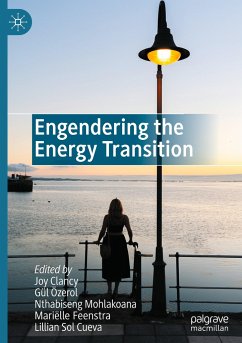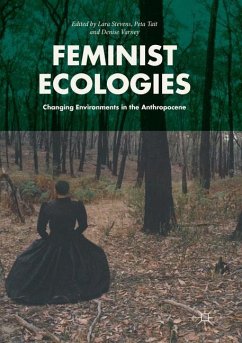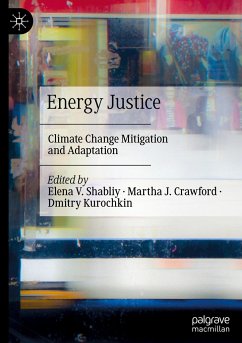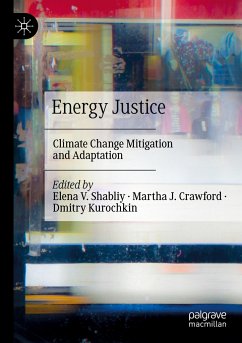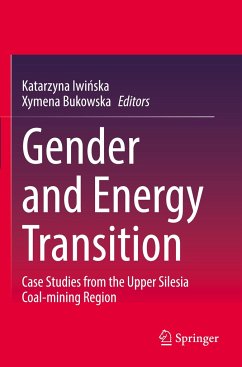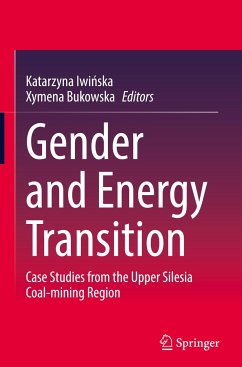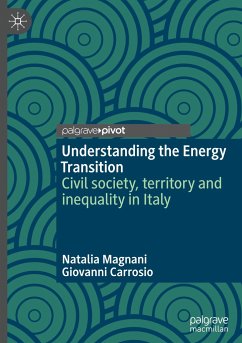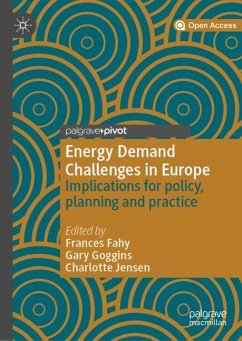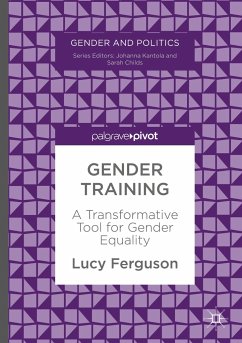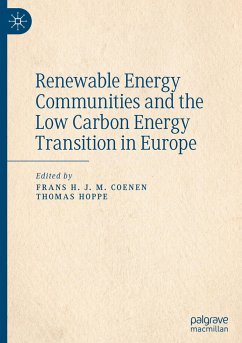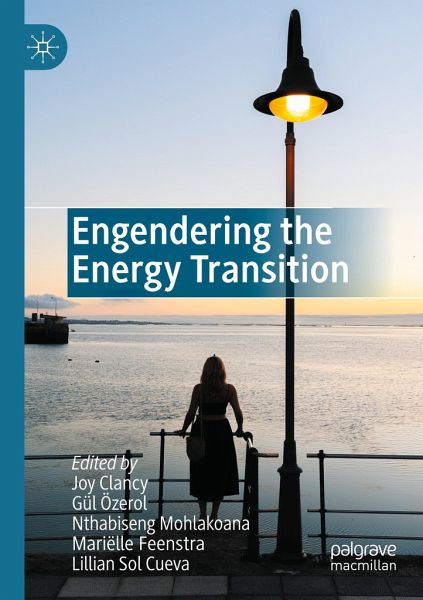
Engendering the Energy Transition
Versandkostenfrei!
Versandfertig in 6-10 Tagen
83,99 €
inkl. MwSt.

PAYBACK Punkte
42 °P sammeln!
This book brings together diverse contributions exploring the integration of gender equality in current national energy policies and international energy frameworks across the Global South and North. Taking a multi-disciplinary approach, this collection contributes to building a body of independent empirical evidence about the impacts of the energy transition on socio-economic outcomes, with a focus on gender differentiated choices of energy forms. The book includes short reflections in each chapter allowing the reader to explore the content from an alternative perspective. The common thread e...
This book brings together diverse contributions exploring the integration of gender equality in current national energy policies and international energy frameworks across the Global South and North. Taking a multi-disciplinary approach, this collection contributes to building a body of independent empirical evidence about the impacts of the energy transition on socio-economic outcomes, with a focus on gender differentiated choices of energy forms.
The book includes short reflections in each chapter allowing the reader to explore the content from an alternative perspective. The common thread enabling the book to actively contribute to engendering the energy transition is its approach to the topic from a primarily 'gender' driven perspective. The book draws many useful lessons from practice and shares gender mainstreaming tools for use across the Global South and the North. Such an approach brings novel insights from theoretical, methodological and practical perspectives, which further promotes cross-disciplinary learning and will be of interest to researchers and practitioners from across the Energy and Gender disciplines.
The book includes short reflections in each chapter allowing the reader to explore the content from an alternative perspective. The common thread enabling the book to actively contribute to engendering the energy transition is its approach to the topic from a primarily 'gender' driven perspective. The book draws many useful lessons from practice and shares gender mainstreaming tools for use across the Global South and the North. Such an approach brings novel insights from theoretical, methodological and practical perspectives, which further promotes cross-disciplinary learning and will be of interest to researchers and practitioners from across the Energy and Gender disciplines.



